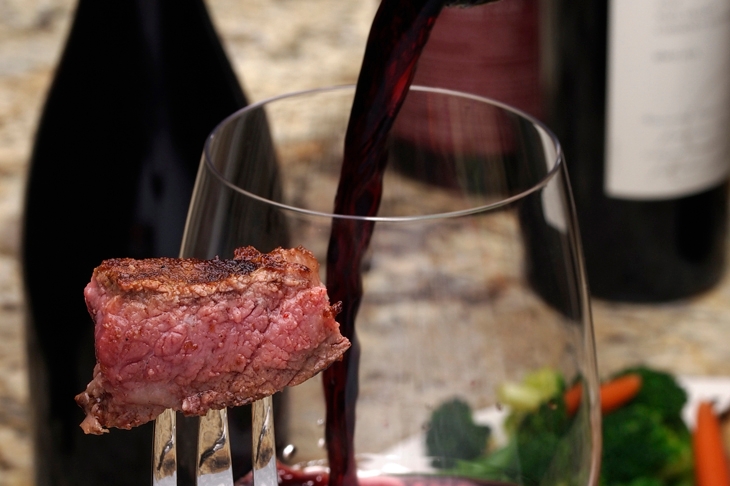Life is far too important to be taken seriously. At least, that was the conclusion which we meandered towards as a Sunday lunch party eased into a symposium. Chaps had opinions to draft, articles to write, books to review. But no one was minded to defer to conscientiousness — especially as we had all made a solemn pledge not to discuss Brexit.
Our host had consulted me about the bill of fare. Should it be lamb and Burgundy or beef and claret? I declared myself ready to settle for either, though both might be inadvisable. Beef it was, and grass-fed Aberdeen Angus at that. As I often remind vegetarians (too damned numerous these days, even if they are cheap to feed), in view of the vegan diet and intelligence level, grass-fed cattle should be regarded as mooing vegetables.
The wine was worthy of the occasion. We started with a Branaire–Ducru 2000. There are those who claim that it is an underrated wine. If that is true, it ought not to be. Red blood on the plate, mixing with the roast potatoes, and perfectly complemented by blood-red wine in the glass: as someone observed, this was the ideal way to celebrate the first Sunday in Lent.
We discussed recent reading. I had picked up a copy of The Light That Failed, and sympathised with the early reviewers who declared themselves unimpressed, though this did not disrupt Kipling’s rise to fame and fortune. There are good lines: ‘The truly healthy man doesn’t know he has a liver.’ ‘Who’s the man who says we’re all islands shouting lies to each other across seas of misunderstanding?’ I have been unable to trace that author. Perhaps it was Kipling’s own paraphrase of ‘a tale told by an idiot’, a view of life he was often close to sharing.
Yet overall it is a poor book. Be it unhappiness or creativity, Kipling is never in control of his material, and the ending is absurd. I do not object to sentimentality. One of my dearest friends, a girl who has often appeared in disguise on this page, regularly insists that I am a sentimental old git (the ‘old’ stings). But Dick’s fate falls far short of sentimentality. It collapses into mawkishness.
With a rhubarb crumble, we had moved on to a Climens ’06. Although pudding wine might not seem to be the ideal accompaniment to Kipling, it worked wonderfully well with this pudding. Beef and claret, crumble and Barsac: someone pointed out that it is possible to cooperate with the French. He was promptly shushed, lest he trespassed on the forbidden topic. Kipling was safer, even if his intellect is as hard to summarise as post-war French foreign policy. It is interesting, and to their credit, that both T.S. Eliot and David Gilmour have admired him. Each of them could see the grandeur in his attempt to make sense of the human condition against the vast canvas of the British Empire: ‘What do they know of England who only England know?’ At times, the demands of imperial defence almost tempt him towards Prussianism, but only ‘almost’. Tommy Atkins would never have stood for it.
Private Atkins’s bard paid for his oeuvre by a long schooling in hardship and unhappiness: Thomas Mann would have diagnosed Krankheit, probably rightly. If Kipling had enjoyed the happiness for which he was so obviously designed, his creativity would have suffered. As it was, the poor fellow enjoyed all the laurels which his countrymen could bestow. He was hailed as one of the great men of the age, while his only son lay in an unmarked grave: just another name on the Menin Gate.
By now, we had returned to claret. Our host apologised for running out of Branaire, but an ’08 Beaumont en magnum was a thoroughly sound wine. It would have been a shame to proffer classed growths to satiated palates. Anyway, there were digestifs to come. We used them for a double toast, to Kipling’s shade and to Tommy Atkins down the ages. Long may he endure.






Comments